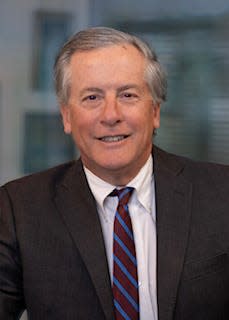Strictly Legal: Jury in Trump trial will remain anonymous


An anonymous jury will hear an upcoming civil trial in which former President Donald Trump is a defendant. The court ordered this unusual move based on the past actions and comments of Trump and his followers.
The former president is scheduled to stand trial beginning April 25 in a case alleging that he raped Jean Carroll in the 1990’s and later defamed her in his response to those allegations. Earlier this month, the court asked the parties to file any objections to conducting the trial before an anonymous jury. Neither party objected, but several media organizations intervened and did object. Late last week, the court overruled those objections.
In deciding to proceed with an anonymous jury, the court noted that the case before it did not fit the mold of the typical case that requires anonymous juries. Those cases most often involve terrorism or organized crime – where “the risk of tampering with or violent retaliation against jurors by criminal defendants or their confederates [is] palpable.” But in acknowledging that this case didn’t fit that mold, the court said “that is only the beginning of the discussion, not the end.”
The court determined that if it revealed the juror identities, “there would be a strong likelihood of unwanted media attention to the jurors, influence attempts, and/or of harassment or worse of jurors by supporters of Mr. Trump.” This begs the question what was the evidence supporting this conclusion? The court pointed to Trump’s own statements and conduct.
The court noted for example, that Trump “has made critical statements on social media regarding the grand jury foreperson in Atlanta, Georgia, and the jury foreperson in the Roger Stone criminal case.” And it viewed these comments in the context of “Trump’s many statements regarding individual judges, the judiciary in general, and other public officials.”
The court also cited to Trump’s incitement of the January 6 attack on the Capitol, and his call for his followers to protest what he characterized as his imminent indictment in an unrelated criminal matter. In the court’s view, this pattern of conduct was likely to continue such that jurors in the case before it would be at risk from Trump supporters who might be unhappy with an adverse verdict.
The court’s decision allowing an anonymous jury is an extreme move. Trials are supposed to be public events, and the public in most cases should have the right to know who is rendering a verdict. Knowing this information helps root out and prevent corruption and bias. On the other hand, courts tend to be protective of jurors. Courts frequently will take steps to prevent release of juror identities. In many cases, however, this is based on supposition that jurors need that protection, not evidence of any actual threat.
From a transparency perspective, the bad news in this case is that the public won’t know who rendered the verdict here. The only good news is that the court based its decision on actual evidence of threats rather than unsupported supposition.
Jack Greiner is a partner at Faruki PLL law firm in Cincinnati. He represents Enquirer Media in First Amendment and media issues.
This article originally appeared on Cincinnati Enquirer: Strictly Legal: Jury in Trump trial will remain anonymous
